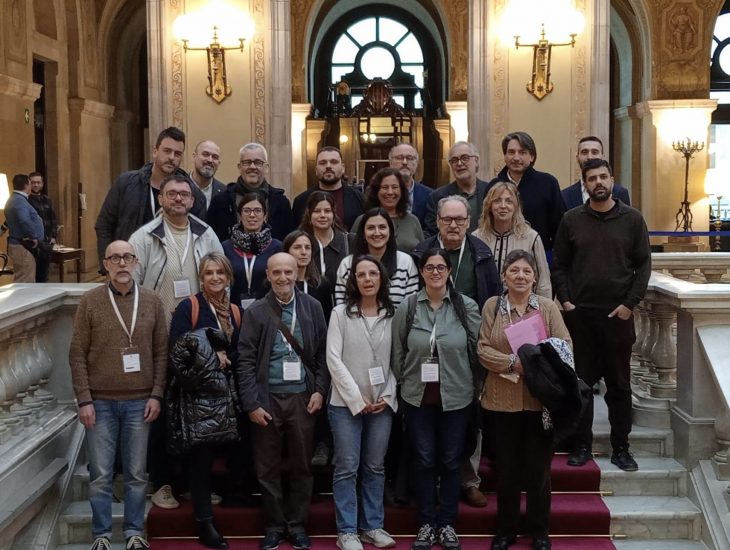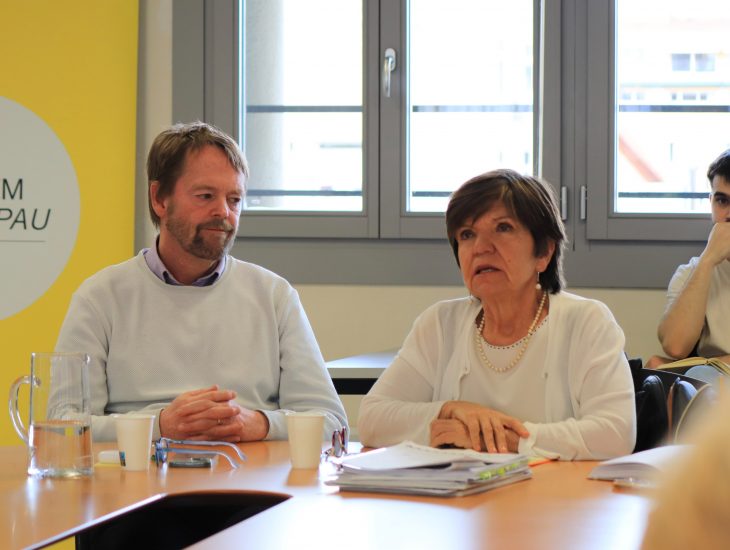As part of the process of reflection and thematic focus initiated by ICIP’s Governing Board, the seminar Violence(s) in Latin America: Causes, Consequences and Opportunities for Peacebuilding took place on Tuesday 30 May at the Can Sisteré Center for Contemporary Art in Santa Coloma de Gramenet.
The seminar focused on analyzing the nature, causes and consequences of the multiple types of structural violence particularly affecting Latin America beyond the dynamics of armed conflicts. This violence is widespread in countries like Brazil, Colombia, El Salvador, Guatemala, Mexico and Honduras (74 percent of the people who die violent deaths do so in a context of unarmed conflict). These types of violence have scarcely been analyzed with the theory of conflict analysis and peacebuilding and respond to complex rationales: contexts of institutional weakness with high levels of inequality, social exclusion and vulnerability.
In the inaugural conference, economist Luis Jorge Garay contextualized the phenomenon of these unconventional types of violence: new forms of criminality that exist in multiple dimensions (economic, political and social), in multiple locations (they are both a national and transnational phenomenon) and that are structural in nature because they are deeply rooted in both public and private institutions. Juan Carlos Garzón, a researcher at the Fundación Ideas para la Paz (Ideas for Peace Foundation), agreed with this main idea and added that in Latin America it is often the criminal organizations that guide the behavior of the State.
In his presentation, Garzón noted the high levels of violence that exist in Latin America, mainly in the cities (with 8 percent of the world’s population, the region accounts for 33 percent of the world’s homicides). For his part, Stephan Sakalian, of the International Committee of the Red Cross, highlighted the “invisible effects” of violence, beyond the homicides: internal displacement, threats, extortions, sexual violence, impact on mental health and disappearances.
In a roundtable discussion, the seminar also analyzed policy responses in countries like Honduras, Guatemala and El Salvador, revealing that hardline policies and securitization contribute to increased violence rather than to its transformation. In this regard, for example, researcher Sergio Maydeu noted that securitization has significant economic and social impacts, and that a comprehensive response to these types of violence is necessary, based on integration policies and economic opportunities for the population. Regarding the specific case of El Salvador, journalist Roberto Valencia described a harsh reality marked by the criminality of the “maras”, or gangs, which in his view are the main generators of violence. The seminar also discussed the war on drugs and the role of youth gangs, and ended with a panel discussion on peacebuilding and resilience strategies, with the work carried out by the activist Valdènia Paulino in poor and violent communities in Sao Paulo, and the project on reconciliation in El Salvador led by the professor and Marist Jaime Comabella.
In the concluding remarks, the professor and member of ICIP’s Governing Board, Oscar Mateos, emphasized the importance of understanding these other types of violence in order to transform them and thus open up new areas of study and research of this phenomenon to build new methodologies based on the experiences of peacebuilding that exist at a local level. Finally, he also put on the table the need for a greater involvement of international actors to give the situation more visibility.
Vídeos of the seminar
02.01.2017



